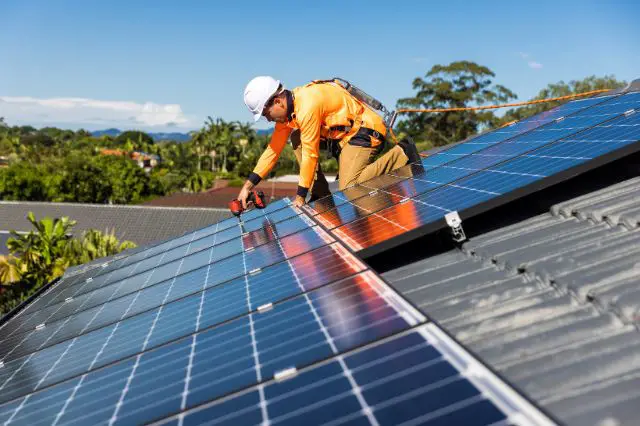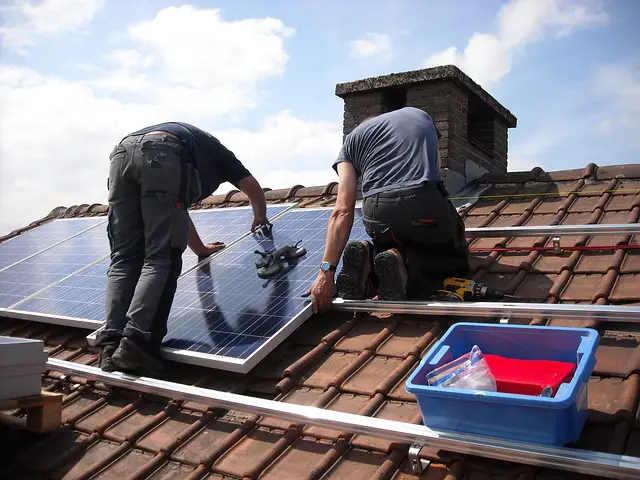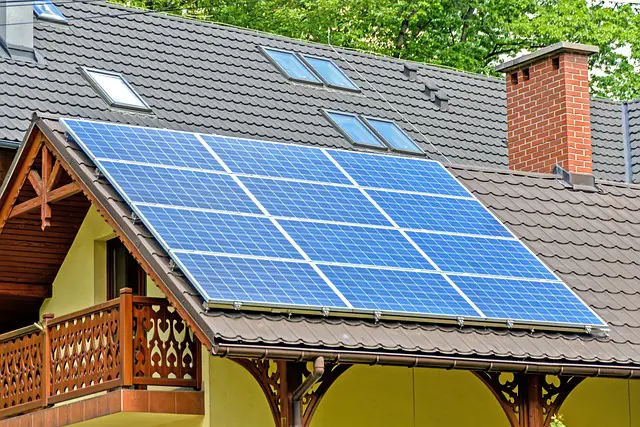The Advantages of Solar Energy Systems in Your Home

Imagine reducing your energy bills while contributing to a greener planet. Sounds appealing? Well, solar power makes this possible. This renewable power source is not just good for the environment, it’s also beneficial for your pocket. But how exactly does harnessing the power of the sun benefit you at home? Let’s dive in and explore the advantages of installing a solar power system in your residence.
Renewable and Sustainable Energy Source
These systems capture the sun’s rays and convert them into electricity using photovoltaic cells. Nowadays, it’s common knowledge that solar energy is renewable, meaning it’s an endless resource. Unlike fossil fuels, which are limited and can result in harmful emissions, the sun offers a clean, green source of power that is available in abundance. Furthermore, the sun is a steady source of energy; even on cloudy days, solar panels can collect some energy.

By harnessing solar power, you’re reducing your dependence on nonrenewable energy sources, thus promoting sustainability. Additionally, these systems are designed to last, typically over 25 years, ensuring a long-term, sustainable investment. The energy generated can also be stored in batteries for use during nighttime or when sunlight is limited, further enhancing its sustainability. In summary, these systems provide a renewable and sustainable energy source by utilizing the inexhaustible power of the sun while supporting the longevity of our planet.
Reduced Electricity Bills
Renewable energy systems can significantly reduce your electricity bills because they generate power directly from the sun, replacing or offsetting the energy you consume from the grid. The more solar power you produce, the less energy you need to buy from your electricity provider, resulting in cost savings. Moreover, if your system produces more power than you use, the surplus energy is fed back into the grid. Many areas offer net metering, allowing you to earn credits or even cash for this excess power.
Furthermore, solar power systems require minimal maintenance, reducing costs over time. By investing in solar power, you essentially lock in a rate for the energy your system produces, protecting you from rising electricity rates. Overall, solar power systems offer a cost-effective solution for managing your long-term energy costs.
Return on Investment
The initial cost of installation is often recouped through years of reduced energy bills. As a homeowner, you’ll start saving from day one and continue to do so for the life of the system, typically 25-30 years. Over time, these savings can exceed the initial investment, thus delivering a positive ROI. Additionally, homes equipped with solar power systems often command a higher resale value, owing to the desirable feature of reduced energy costs.
In some regions, there are government incentives and tax rebates for installing solar systems, further enhancing the ROI. The ability to sell excess energy back to the grid through net metering can also generate income, contributing to a faster payback period. In conclusion, the ROI from solar power systems is multifaceted, encompassing savings in energy bills, potential increase in property value, and income from sold excess energy.
Environmental Benefits
Solar power can bring various environmental benefits and the more people use it, the more visible this impact will be. Here are some of them:
- Reduced greenhouse gas emissions
- Air and water pollution prevention
- Conservation of natural resources
- Energy independence and security
- Mitigation of land use impact
- Protection of biodiversity
- Water conservation
- Noise reduction
- Long-term sustainability
- Global impact on climate change
By replacing fossil fuel-based energy, these systems significantly reduce greenhouse gas emissions, aiding in the fight against climate change. Solar power also mitigates air and water pollution, preserving ecosystems and promoting biodiversity. As a renewable resource, it conserves finite natural resources, fortifying energy security and independence.
Solar systems operate silently, reducing noise pollution, and requiring minimal land, mitigating land use impact. Additionally, solar power requires no water to operate, supporting water conservation. In essence, solar power not only ensures long-term sustainability but also fosters a global positive impact on climate.
Energy Independence
Solar power systems are a cornerstone for achieving energy independence at both the individual and national levels. For homeowners, having one means less reliance on the grid, thus gaining control over your energy costs and usage. The ability to store excess solar power in batteries for use during nighttime or less sunny periods further enhances this independence.
On a larger scale, the widespread adoption of solar power can reduce a nation’s dependence on imported or non-renewable energy sources. This not only ensures a constant, reliable source of energy but also bolsters national security. By investing in solar power, we invest in a future of energy autonomy, free from volatile energy prices and supply disruptions.
Increased Property Value
Installing solar power systems is a proven way to increase property value. This comes from the fact that more and more homebuyers are seeking energy-efficient homes due to the rising awareness of environmental sustainability and the desire for reduced energy bills. In turn, homes equipped with solar power systems often command a higher purchase price.
According to studies, these properties sell faster than non-solar homes and can increase home values by up to 4%. Additionally, buyers are generally willing to pay a premium for a solar home, adding about $15,000 for a typical system. Therefore, adopting solar power not only provides significant energy cost savings but also serves as a valuable home improvement strategy that can boost your property’s market value.
Low Maintenance Requirements
These systems are designed to be durable and withstand various weather conditions, requiring little to no upkeep once installed. Routine cleaning a few times a year to remove dust and debris is typically all that’s needed to keep the panels operating at their full potential. There are also no moving parts, reducing the likelihood of mechanical failure.
Additionally, most solar panel manufacturers provide 20 to 25-year warranties, ensuring your system will be free from defects or substantial performance declines for many years. In essence, the simplicity and longevity of solar power systems make them an easy-to-maintain, trouble-free energy solution.

In conclusion, harnessing solar power in your home is truly a wise investment. It not only decreases your energy costs and boosts your property value but also contributes to a more sustainable future. So, make the switch to solar power today, enjoy the benefits of energy independence, and play your part in safeguarding the environment for future generations. There’s no better time than now to go solar!




